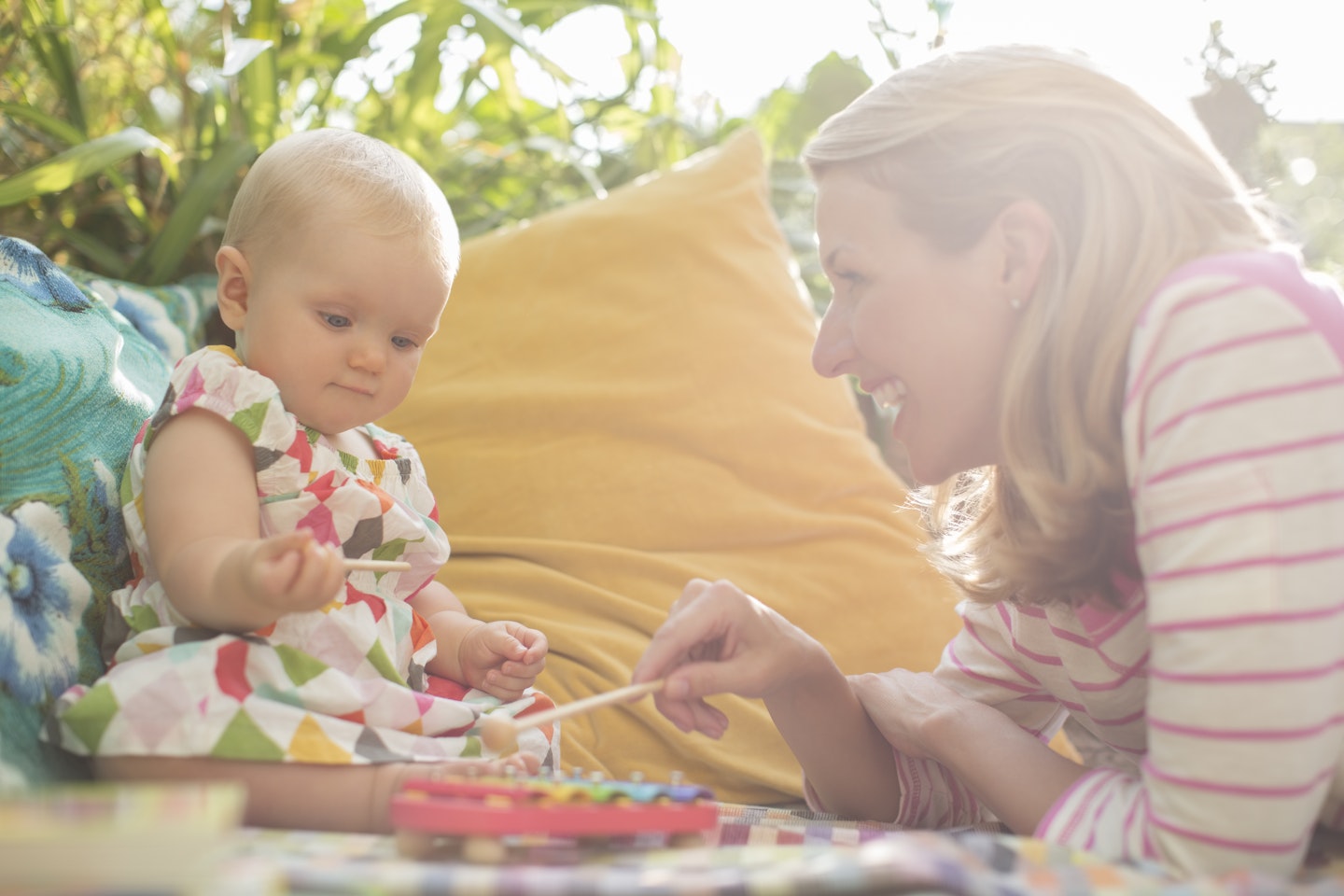If you’ve been singing a lullaby to your bubba, giving them instrument playtoys as they’re old enough to rattle things about, and playing the radio in the car on long journeys, then you’re already setting your tot up to be quite the talker.
Because a new study has revealed just how crucial this musical exposure is in your child’s early years - and even months.
Scientists at the University of Washington's Institute for Learning & Brain Sciences found that regular musical play sessions improves 9-month-old babies ability to process new speech sounds as well as music.
It’s all down to the rhythmic pattern apparently, as it helps little tots suss out sound patterns that also translate to speech.

Lead author of the study, Christina Zhao, explained the significance of the findings:
"This means that early, engaging musical experiences can have a more global effect on cognitive skill.”
Co-author Patricia Kuhl added: “Infants experience a complex world in which sounds, lights and sensations vary constantly.
“The baby's job is to recognize the patterns of activity and predict what's going to happen next. Pattern perception is an important cognitive skill, and improving that ability early may have long-lasting effects on learning."
In the experiment, 39 babies attended 12-15 minute play sessions in the lab with their parents over the period of a month.
20 of the little bubbas were assigned music play sessions (aw, to be a baby), and 19 were in controlled groups playing with non-musical objects like building blocks and toy cars.
"In both the music and control groups, we gave babies experiences that were social, required their active involvement and included body movements - these are all characteristics that we know help people learn," Zhao said. "The key difference between the play groups was whether the babies were moving to learn a musical rhythm."

And to monitor the effect the play sessions were having on the tots, the researchers used a brain scanner to measure their thinker’s response to the activities. They found the babies in the music group had stronger brain responses to disruption in music and speech rhythm than the other sample.
The link between speech, language and music is crucial. For example, rhythmic patterns in music can help little ones pick up the timing of syllables and separate speech sounds. Identifying these complexities of language help babies learn how to structure speech.
The study researchers are now urging more schools to take up music lessons, saying:
“This research reminds us that the effects of engaging in music go beyond music itself. Music experience has the potential to boost broader cognitive skills that enhance children's abilities to detect, expect and react quickly to patterns in the world, which is highly relevant in today's complex world."
And, let’s face it, a music session is definitely an activity for the whole family to enjoy.
